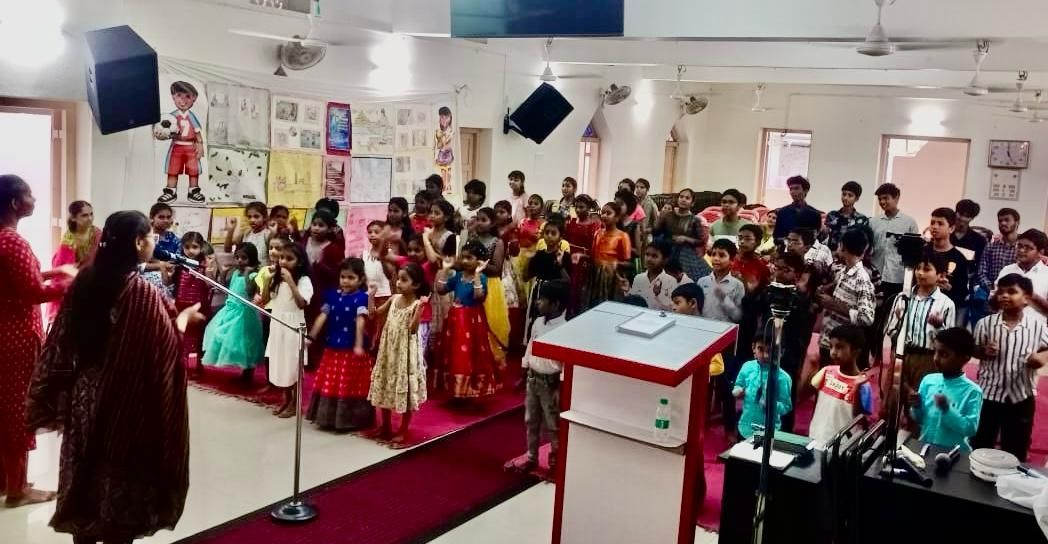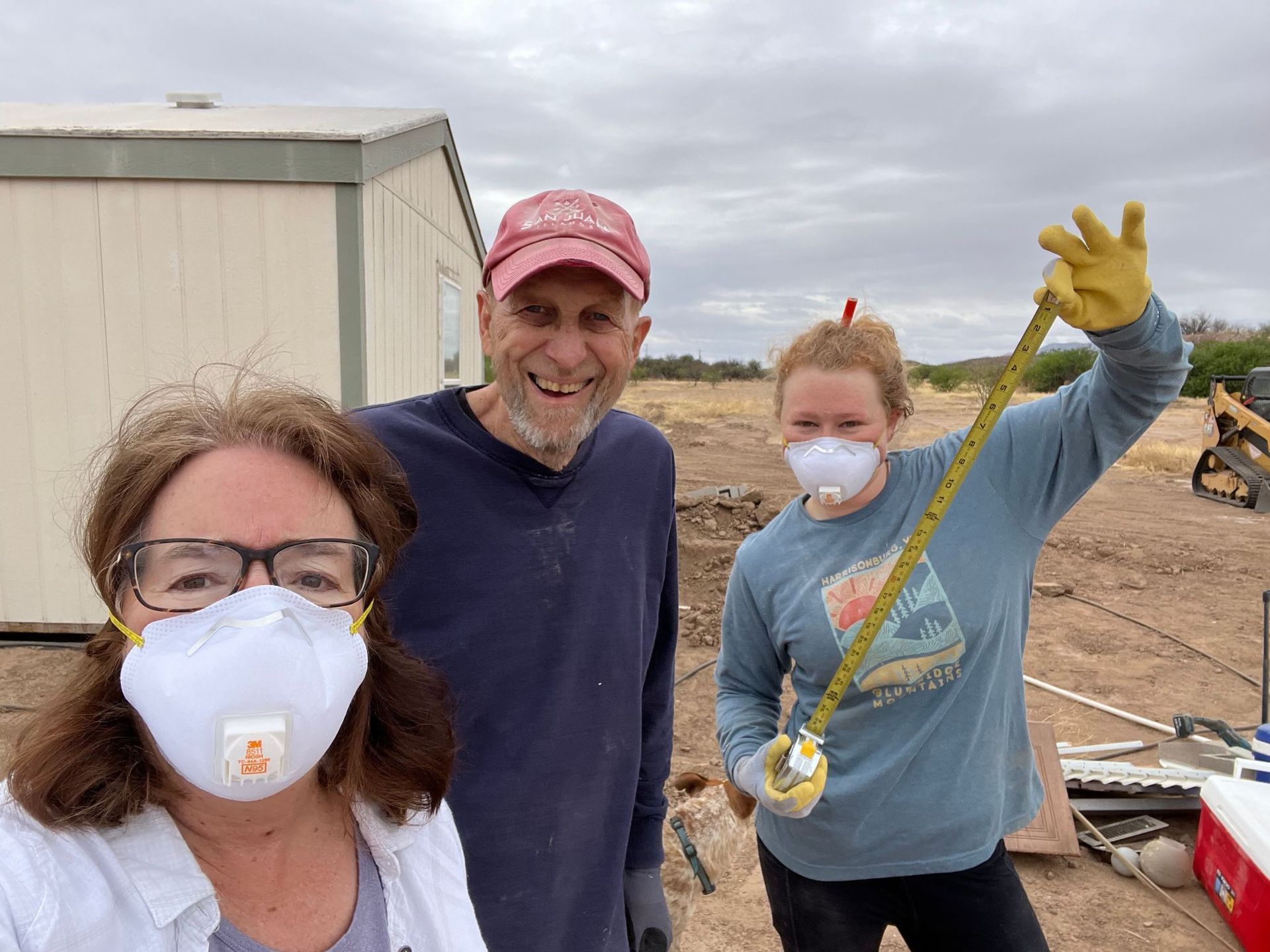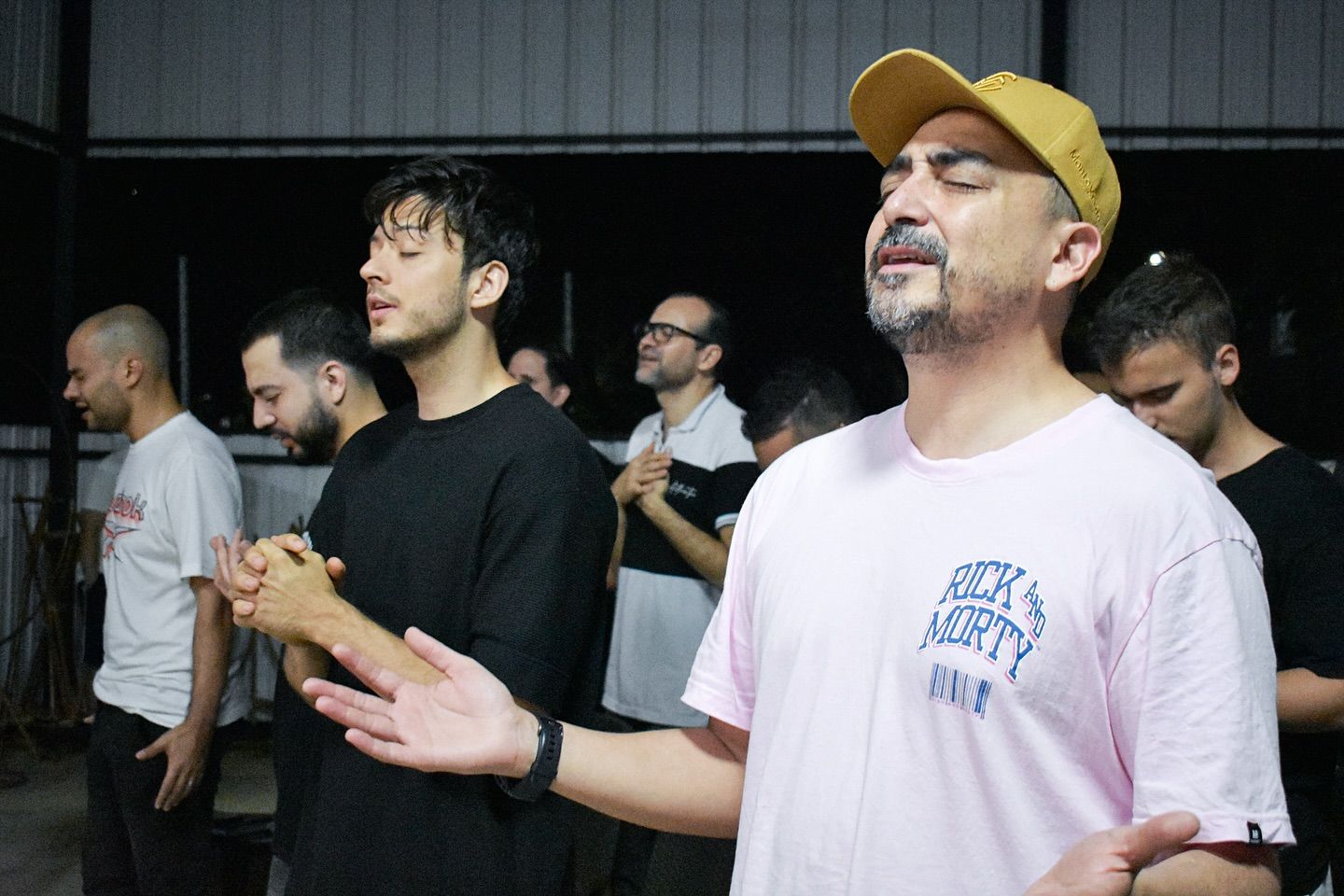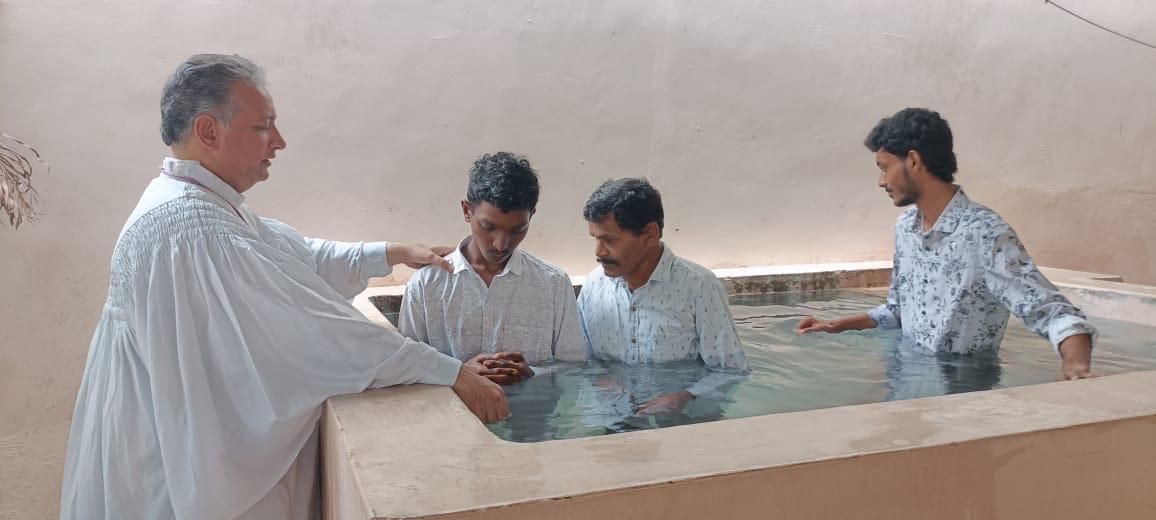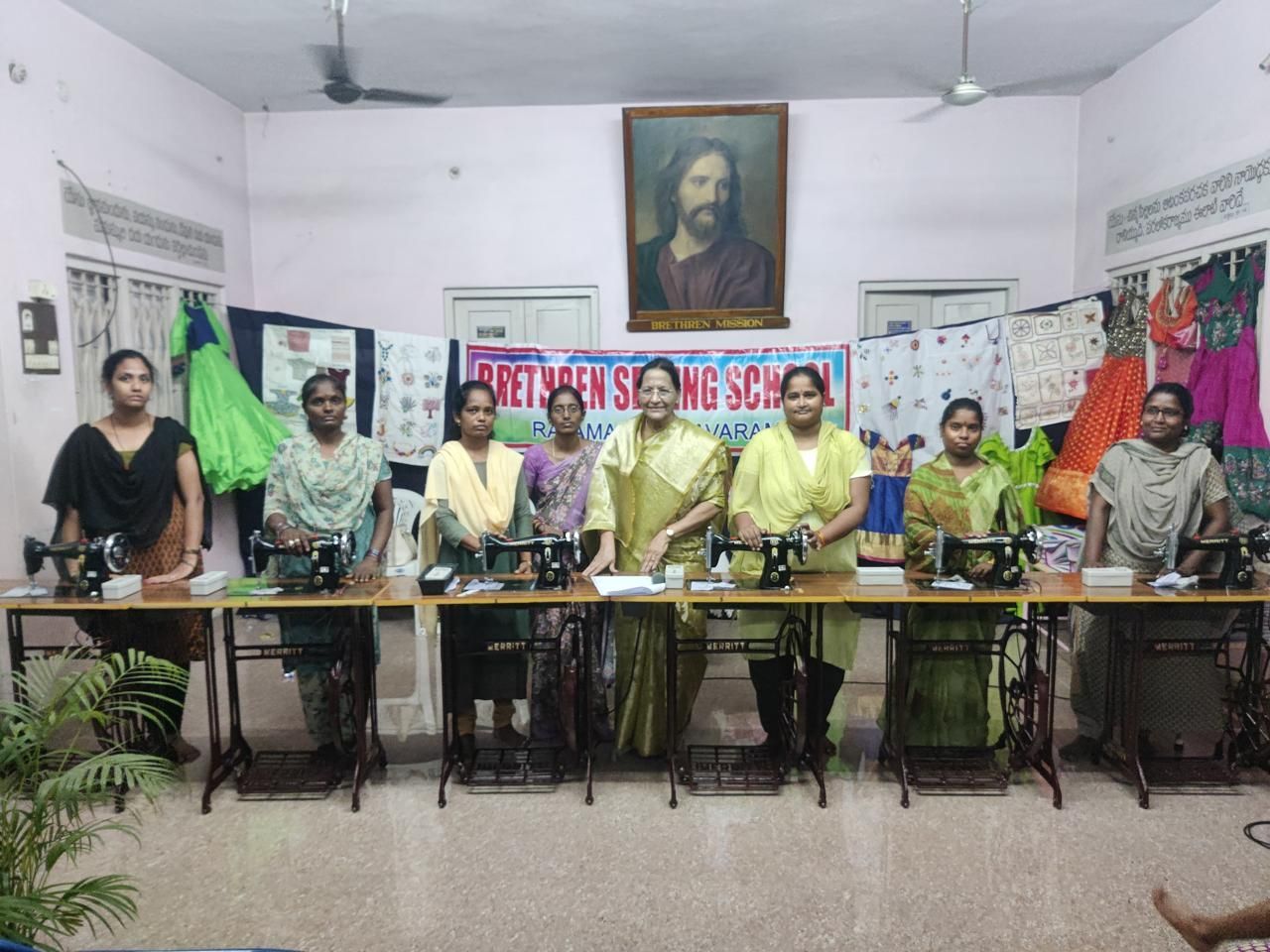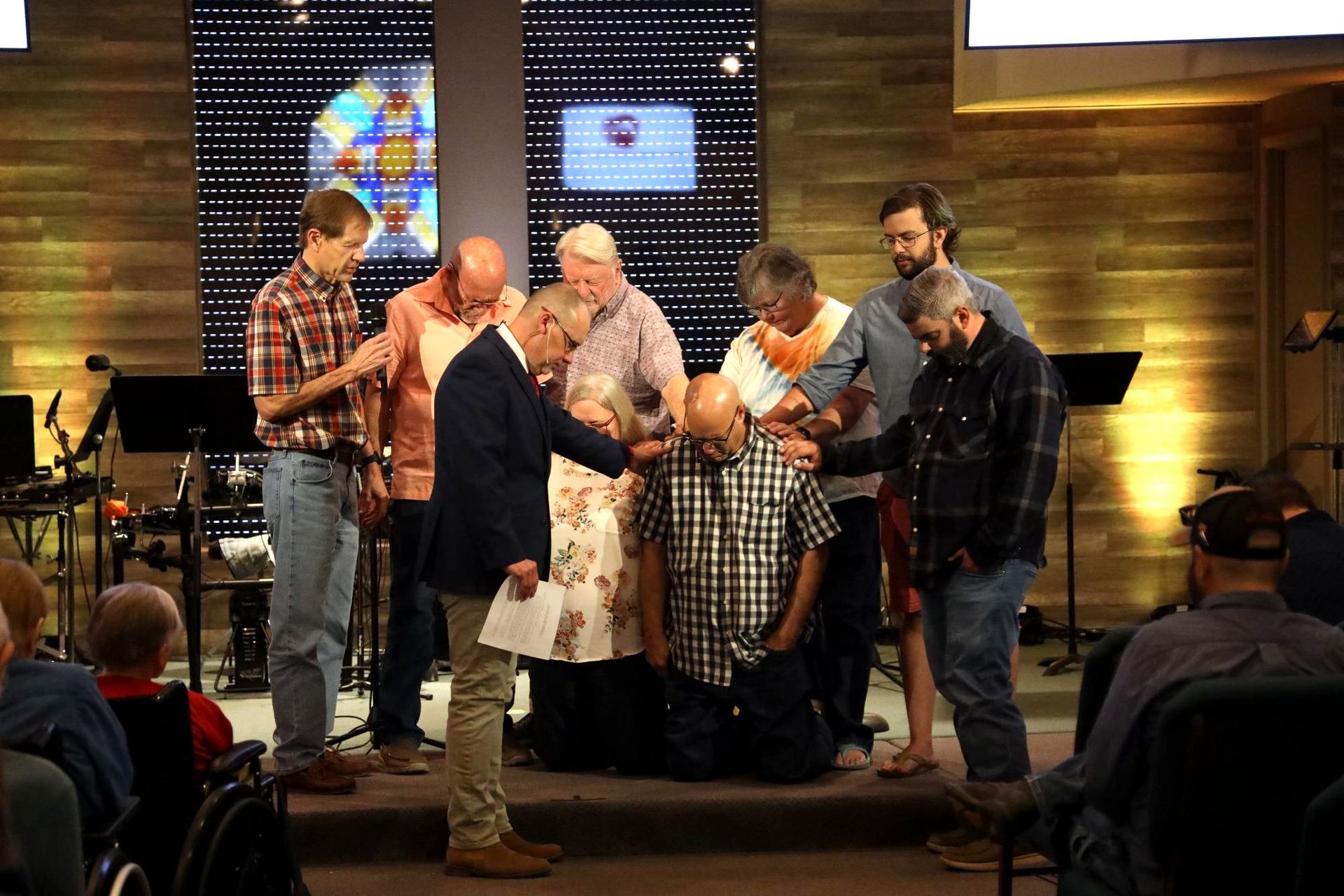Why A Church Called Brethren?
This article was written by Jerry Flora and appeared in the October 1977 issue of The Evangelist.
Here’s a “both-and” answer for Brethren searching for a distinctive identity.
SOME days you can't do anything right. If some joker asks, "Have you stopped beating your wife?" you're stumped. No matter which way you reply, he will charge you with cruelty to your spouse.
Some questions can't be answered, it seems, because they are improperly formed. Other questions should receive a clear, specific answer. Either it is Monday or it's not. Either you live as though there is a God, or you don't.
Still other questions deserve a response of both-and. Life on planet earth, for example, demands both centrifugal force and gravity. Scripture teaches divine sovereignty and human responsibility.
Once Jesus was asked which of the 613 commands in the law of Moses is the greatest. "I'll tell you which is the great commandment," he replied, "but it doesn't stand alone. There is a second that goes with it, and on these two depend all the law and the prophets: love the Lord your God completely, and love your neighbor personally.”
If we apply that kind of both-and approach to life in the Brethren Church, it may help us. Why does this denomination exist? Why should there be a church called "Brethren"? The Brethren Church exists to express our allegiance to the Lord Jesus in a family style out of loyalty to the gospel and love for the world. We have here both the "what" and the "why" of our existence.
The identity, the "what," of the Brethren Church is our faith in God through Jesus Christ our Lord and the family style in which we express it.
Allegiance to Jesus as Lord
Jesus said in reply to that question, "You shall love the Lord your God." Now, "Lord" is the Hebrews' name for the God who gets involved with people. "God" is the general term for the Infinite One who created the universe and keeps it going. But "Lord" or "Yahweh''-this is that same God in his personal relationships with sinful humanity. It was he who reached down and called an Abram, sustained an Isaac, transformed a Jacob, and freed a whole nation from slavery. Jesus said, "The Lord, this God who acts on behalf of such people-love him! Answer his love with all that you are: heart, soul, mind, and strength. Love your Rescuer completely, utterly, always, and love only him."
The apostles never forgot what he said. And the central thrust of their writings is not "accept Jesus as your personal Savior." That is both true and necessary, but the basic confession of the New Testament declares, "Jesus Christ is Lord!" Jesus the Jew is God Almighty come to earth for us sinners and for our salvation. Jesus is "Lord," the God who gets involved with people.
The early Brethren knew what that lordship meant and were prepared to accept it. They took as basic a passage in Luke's Gospel where Jesus taught, "If a person is going to come after me, let that person count the cost and not be like the fellow who begins to build but cannot finish, or the king who goes to war but cannot fight. Neither of them has estimated the cost." Alexander Mack, founder of the German Baptist Brethren, wrote much of obedience and sacrifice in following Christ. There is a price tag on loving this Lord completely, and a would-be disciple must count the cost.
We in a republic don't understand lordship. We elect our mayors, we elect our commissioners, we elect our senators, we elect our presidents. We don't know how it feels to have someone over us, before whom we fall prostrate and whisper, "Master! "-someone whose every utterance carries the force of law, whose very glance signs life or death.
The Brethren who first braved the Atlantic to reach Philadelphia knew the meaning of lordship. They talked much about the cost of discipleship. They recalled the story of John Naas, that giant of a man among them. So large in stature was he that the king asked him to join his elite personal bodyguard. But Naas refused to be recruited. They tortured him to no avail, hanging him at last from a tree by one thumb and one big toe. Fearing that he was going to die, they cut him down and dragged him before the monarch. Simply Naas explained that he could not join the king's elite corps because already he was in the army of King Jesus. He had pledged his allegiance to Christ as Lord.
A family style
One unique feature of the kingdom of God is that all its citizens are adopted children in the royal family. The King is their Father, the Crown Prince their Elder Brother. This, too, is part of the "what" of the Brethren Church-this family style.
Jesus said, "Love your neighbor as yourself." If the neighbor is an outsider, that outsider must become an insider and insiders must become family. The old Brethren used to talk about our denomination as "the brotherhood." We experience that brotherhood each year at General Conference. The Brethren are a family, and General Conference is the annual reunion.
It's frightfully easy for us to get caught up in the life of our local churches, forgetting that we are in fact a part of one another. Each congregation is a cell of the body, and each must think of itself in such terms. Henry Holsinger and the others who started the Progressive Brethren described our church government as federated congregationalism. Incidental affairs of operation are left to the local churches, but in major areas of thought and life all Brethren must stand together. We really do need each other!
Rev. Kent Bennett described in a 1970 article in the Brethren Evangelist "What It Means to be Brethren." So far as outsiders are concerned, he wrote, the quality that distinguishes the Brethren is their caring fellowship, what we are here calling a family style of Christianity. Think for a moment about the names of other denominations. Lutherans are disciples of Martin Luther. Presbyterians are so called because they govern their churches by a system of elders (presbyters). Baptists insist on that great rite of the church, and that it be by immersion. Methodists got their nickname because the founding Wesley brothers were so methodical in everything they touched. But what can you do if your name is "Brethren"? You have to be a family! That is what outsiders noticed about the first Christians, and this is what observers marked about the early Brethren, too.
The Brethren Church exists to express our allegiance to the Lord Jesus in a family style out of loyalty to the gospel and love for the world. The second half of that sentence contains the "why" of the Brethren Church, our reason for existence.
Loyalty to the gospel
As Jesus interpreted it, loyalty to his saving good news means obedience. "Why do you call me Lord, Lord, and don't do the things that I say?" he asked. "If you love me, keep my commandments." And so, for Brethren from 1708 to 1978, love has meant loyalty more than coziness or ecstasy.
Now, every family has its forms, and the forms of various families differ. Some whole families, for example, squeeze the toothpaste tube in the middle. In one family the father takes out the garbage; the father in another family wouldn't think of taking out the garbage. Call it tradition, call it ritual, call it whatever you like-every family has its forms. And the Brethren Church has hers. Best known are the external forms of baptism by trine immersion, confirmation by the laying on of 'hands, the threefold service of the Lord's Supper, and prayer with anointing for healing.
In addition to these, the Brethren family style from the beginning took the internal form of an obedient life. Here is the root of which the external forms are fruit. If Jesus commanded something, the original Brethren tried to do it. Sometimes they went too far and had to pull back; then they might change direction, only to correct their course again. But they were desperately intent on obeying the word of the Lord to whom they had pledged allegiance.
This family style was also a separated life, a life set apart from the world and reserved for Jesus' use. At times there was too much emphasis on being separated "from" and not enough on being set apart "for." Today many Brethren haven't even heard of the doctrine of the separated life. It is in Scripture, and it's part of our heritage.
In the third place, Christian life for the founding Brethren was a simple life. Modesty and frugality in obedience to the New Testament characterized their style of living. Now, when ecologists are urging us to simplicity, the Brethren could take their flag out front if they really believe in a simple life.
It also was a peaceful life. This meant a life in which they not only tried to put away violence in religion and international relations, but also they tried to avoid harsh feelings toward one another. These may arise as part of life in a family, but Scripture calls Christ's followers to be reconcilers and peacemakers.
Likewise it was for the early Brethren a ministering life, one in which, at their best, they approached the world and asked, "May I serve you?" If Jesus the Lord came to minister and give away his life, his servants who followed him could do no less.
Can we today hold together these historic forms and our contemporary methods? Or must one be sacrificed in the interest of the other? The Progressive Brethren were convinced that no necessary contradiction exists between eternal realities and time-conditioned techniques. They said in effect, "We can both be loyal to the truth of the gospel as practiced by the early church and apply it in the modern world using the very latest methods." Henry Holsinger even appeared in a photograph wearing his new-fangled rubber overshoes to prove that it could be done!
Love for the world
In attempting to carry out this ideal, Charles F. Yoder, after earning a Ph.D. degree and editing the Brethren Evangelist, left this country in order to found a missionary work in Argentina. Many years and heartbreaks later, when it became necessary to reestablish that same work, Dr. Yoder-then past retirement age-set about to do the job.
This was love for the world, but not in the wrong sense. It was not love for the world that "is passing away and all the desires of it." No, this was true, proper love for the world, as when "God so loved the world that he gave his one and only Son." In fact, "in Christ, God was acting to reconcile the world to himself." That's what got the Progressive Brethren going a hundred years ago. It was their loyalty to the gospel that made them Brethren; their love for the world made them Progressives.
When a theologian asked Jesus about this business of the great commandment and the second, he answered with the story of the good Samaritan. One analysis of that parable says that each of the bandits who beat the traveler and left him half dead was in effect saying, "What's yours is mine, and I intend to take it." The priest and the Levite who passed by on the other side were saying, "What's mine is mine, and I intend to keep it." And the Samaritan - hated half-breed that he was - declared, "What's mine is yours, and you're welcome to it if you need it."
When Jesus finished the story, he turned the theologian's question around. The problem had been "Who is my neighbor?" but he reversed it, asking, "Which of these was neighbor to the victim?" Our Lord laid the responsibility on his hearers to take the initiative by acting in a neighborly manner. He did not require needy outsiders to justify receiving aid. "What's mine is yours, and you're welcome to it if you need it." As those who have become new creatures in him, we need no longer claim anything for ourselves-not even our life.
The existence God gives us is not ours but his, to be given away for the sake of the gospel and the world. Such was the spirit of former Progressive leaders like editor Henry Holsinger, evangelist Stephen Bashor, missionary Charles Yoder, theologian J. Allen Miller, brothers named Ronk, and the inimitable Mrs. U. J. Shively.
At the time of the American Revolution two famous printshops operated in Philadelphia, those of Benjamin Franklin and Christopher Sauer, Jr. A loyal member of the German Baptist Brethren, Sauer suffered personally and professionally during the war and its aftermath. Still he never lost sight of the motto placed in the shop by his father: "For the glory of God and my neighbor's good."
That's what the Brethren are all about. A faith to live by, a family to live with, certain forms to live out, and a future to live for-all to the glory of God and the good of our neighbors. That's why there's a church called Brethren!
